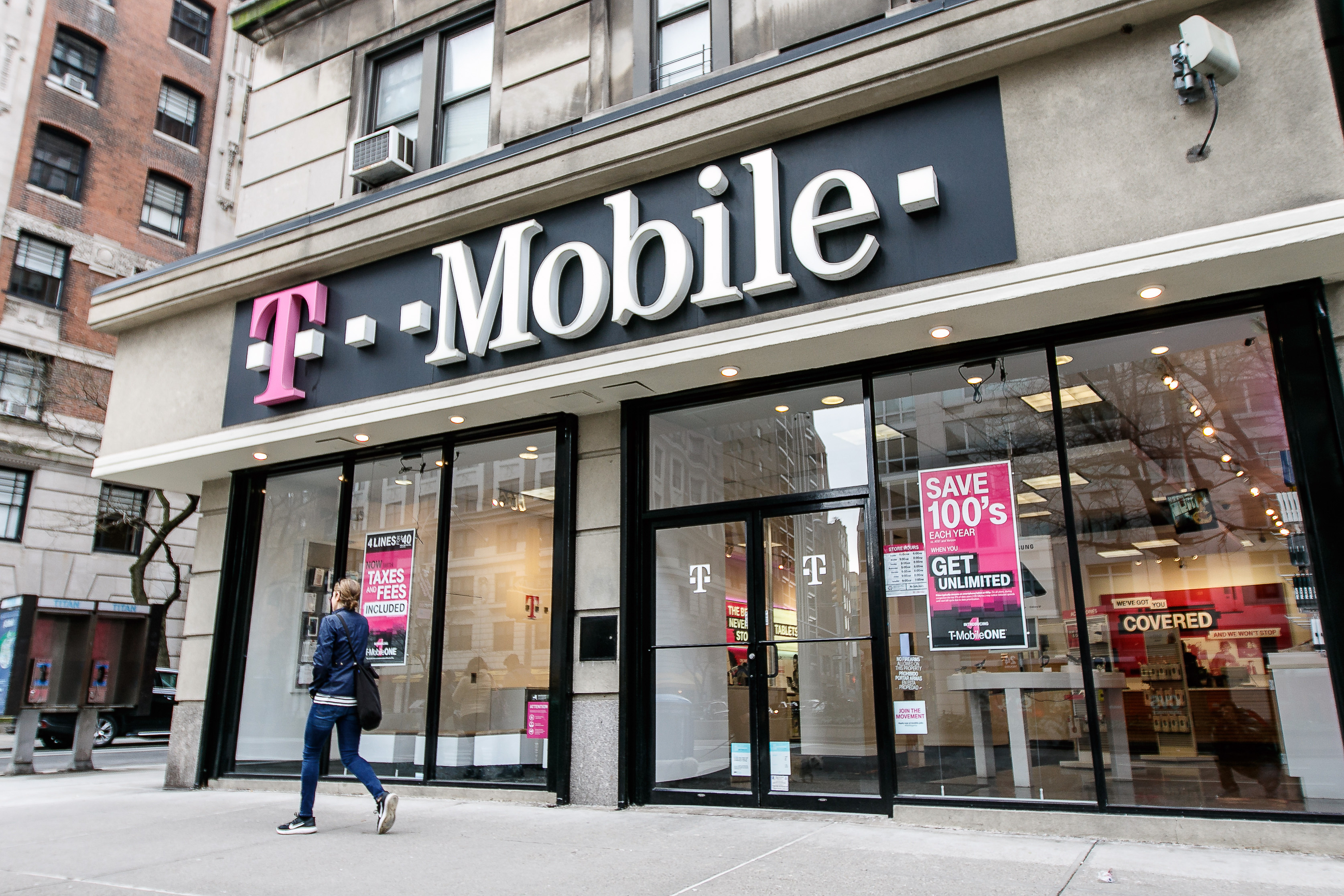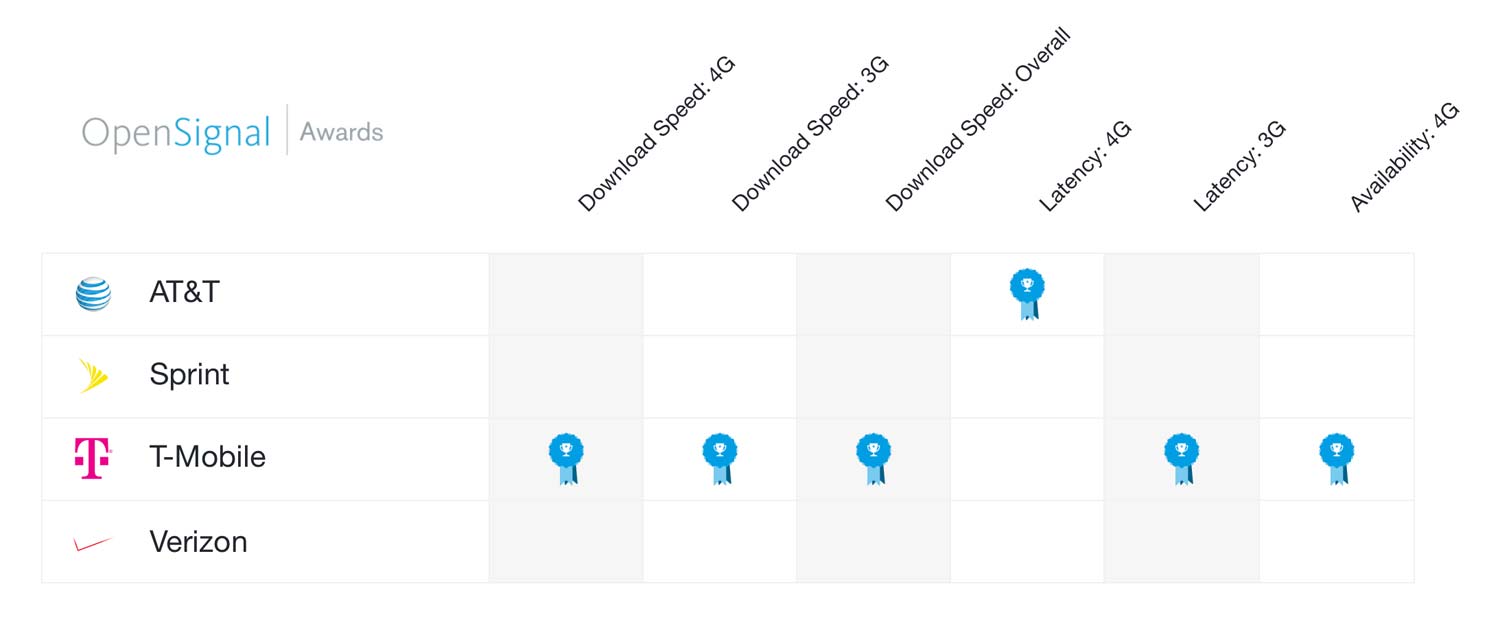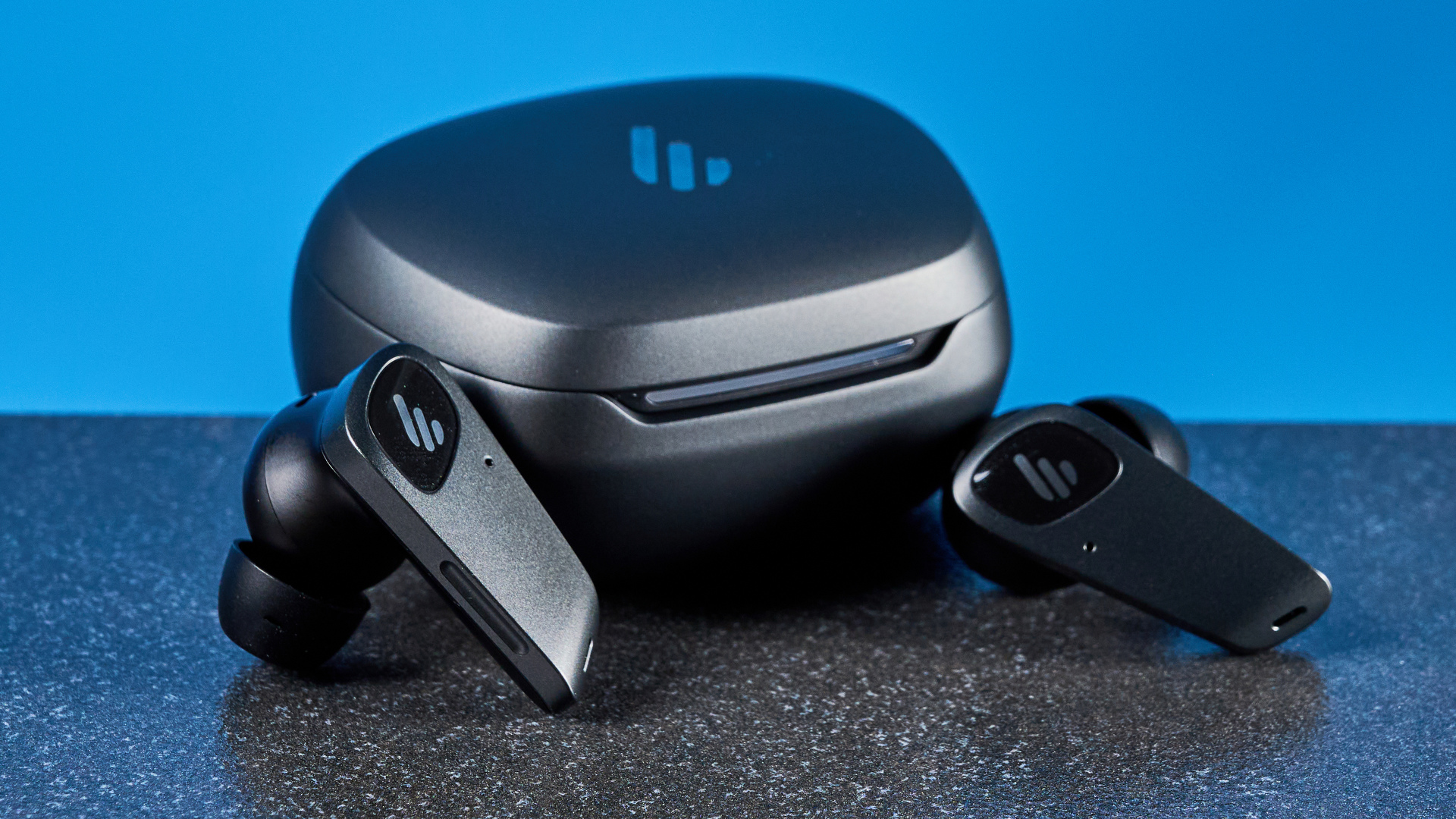Testing Firm: T-Mobile Is the 'Operator to Beat'
T-Mobile put in another strong showing in OpenSignal's latest testing of network performance, winning five of six categories including fastest 4G speeds.
A year ago, network testing firm OpenSignal saw an even battle between T-Mobile and Verizon over which carrier could claim the better-performing wireless network. These days, though, the firm's latest testing results point to a more decisive winner.

T-Mobile "is now the operator to beat," OpenSignal says in its latest report on the state of U.S. mobile Networks. The report, covering the last three months of 2017, pulls data from consumers' phones, basing its findings on a little less than 6 billion measurements from 237,000-plus test devices.
The Uncarrier took the the top spot in five of the six categories OpenSignal measures. The lone exception was 4G latency, which measures a data signal's responsiveness, where AT&T grabbed the honors. In OpenSignal's previous report, T-Mobile had swept all six categories.

T-Mobile claimed first in the category that most wireless users pay attention to — the speed of its 4G network. OpenSignal says the Uncarrier tallied an average download speed of 19.4 Mbps, putting it ahead of runner-up Verizon and its 16.5 Mbps average.
T-Mobile's download speed has steadily climbed over the past year, according to OpenSignal's testing. That's a sharp contrast to Verizon, which saw a dip in its 4G speed early in 2017 after it introduced unlimited data plans, increasing the amount of traffic on its network. OpenSignal reported last week that Verizon had started regaining that lost speed over the summer, and now Verizon's 4G performance is back to where it was prior to the launch of unlimited plans.
MORE: Best Phone Carrier: Who's No. 1?
AT&T, which also saw a dip in speeds during the first half of 2017 when it introduced new unlimited data options, posted an average 4G speed of 13.3 Mbps. Sprint brought up the rear among the major carriers, though OpenSignal noted that its 12 Mbps average was 3 Mbps faster than in the firm's previous report.
In overall speeds, which take both 3G and 4G into account, T-Mobile was tops with an average download speed of 18.3 Mbps, followed by Verizon (16.5 Mbps), AT&T (11.9 Mbps) and Sprint (10.2 Mbps).
The landscape becomes more competitive when you look at it in terms of individual metro areas. T-Mobile won or tied for best 4G speed in 24 of the 33 markets OpenSignal measured, while Verizon won or tied in 23 of those markets.
Reports from third-party testing firms tend to inspire grumbling from whatever carrier didn't finish in the top spot, and this latest OpenSignal report is likely to be no exception. After past reports, Verizon has made it clear that it thinks there are better ways to measure network performance than with OpenSignal's crowd-based methodology, such as drive tests. Not surprising, that's how networking testing firm RootMetrics conducts its evaluations, which consistently rank Verizon ahead of its rivals.
One part of OpenSignal's report that's sure to be welcomed by all wireless users regardless of which network they use is the availability of 4G signals that the firm found during its testing. OpenSignal measures the proportion of time users have an LTE connection available to them, and in this latest report, both T-Mobile and Verizon passed the 90 percent market — something no carrier could claim a year ago.
All four carriers tallied increased 4G availability. T-Mobile had the highest percentage at 93.1 percent, with Verizon right behind at 92.7 percent. Sprint saw its 4G availability go up 9 percentage points in the past year, OpenSignal said.
Sign up to get the BEST of Tom's Guide direct to your inbox.
Get instant access to breaking news, the hottest reviews, great deals and helpful tips.
Philip Michaels is a Managing Editor at Tom's Guide. He's been covering personal technology since 1999 and was in the building when Steve Jobs showed off the iPhone for the first time. He's been evaluating smartphones since that first iPhone debuted in 2007, and he's been following phone carriers and smartphone plans since 2015. He has strong opinions about Apple, the Oakland Athletics, old movies and proper butchery techniques. Follow him at @PhilipMichaels.
-
hang-the-9 Speed is fine, but coverage is often left out and is a better way to judge a carrier. I don't see anything better than Verizon there. It does not matter if you have a faster connection in areas where you have no connection, or an unstable one. I'd take 10mbps everywhere over 20mbps in some areas.Reply -
Brad_53 Include some rural areas in your test, then let's see T-Mobile's availability score compared to Verizon's.Reply

